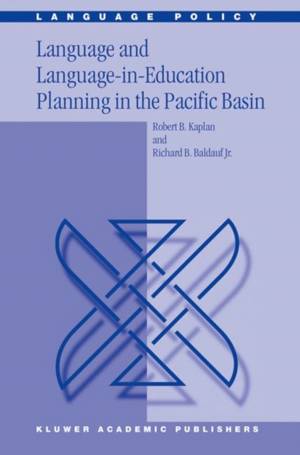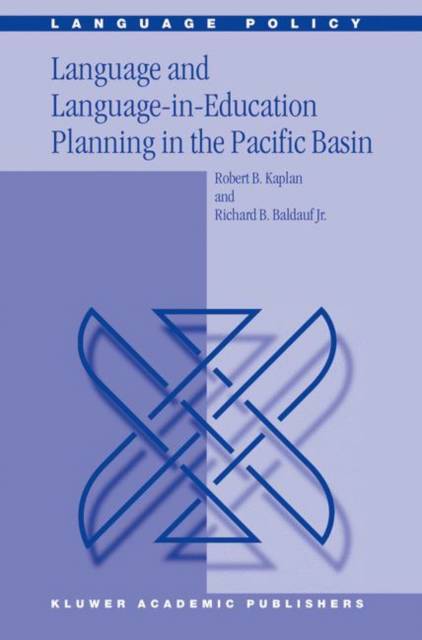
Je cadeautjes zeker op tijd in huis hebben voor de feestdagen? Kom langs in onze winkels en vind het perfecte geschenk!
- Afhalen na 1 uur in een winkel met voorraad
- Gratis thuislevering in België vanaf € 30
- Ruim aanbod met 7 miljoen producten
Je cadeautjes zeker op tijd in huis hebben voor de feestdagen? Kom langs in onze winkels en vind het perfecte geschenk!
- Afhalen na 1 uur in een winkel met voorraad
- Gratis thuislevering in België vanaf € 30
- Ruim aanbod met 7 miljoen producten
Zoeken
€ 153,95
+ 307 punten
Uitvoering
Omschrijving
Language and Language-in-Education Planning in the Pacific Basin examines and reviews the ecological context (including, e.g., the historical, political and educational issues) of language planning in 14 countries in the Pacific basin: Japan, the two Koreas, Taiwan, the Philippines, Indonesia, Malaysia, Brunei Darussalam, Singapore, Australia, New Zealand, Papua New Guinea, the Solomon Islands and Vanuatu. The planning goals pursued in these states are then examined in terms of an overarching view of language planning.
The book provides the only up-to-date overview and review of language policy in the region and challenges those interested in language policy and planning to think about how such goals might be achieved in the context of language ecology. In a world where languages and their uses and users are changing rapidly, and where governments and other political bodies are driving planned language change, there is a need to understand and consider how and why language planning is done.
The book will be of interest to specialists interested in language and education, and to more general readers wishing to understand the dynamics of history and politics and its impact on language and language-in-education policy decisions.
The book provides the only up-to-date overview and review of language policy in the region and challenges those interested in language policy and planning to think about how such goals might be achieved in the context of language ecology. In a world where languages and their uses and users are changing rapidly, and where governments and other political bodies are driving planned language change, there is a need to understand and consider how and why language planning is done.
The book will be of interest to specialists interested in language and education, and to more general readers wishing to understand the dynamics of history and politics and its impact on language and language-in-education policy decisions.
Specificaties
Betrokkenen
- Auteur(s):
- Uitgeverij:
Inhoud
- Aantal bladzijden:
- 277
- Taal:
- Engels
- Reeks:
- Reeksnummer:
- nr. 2
Eigenschappen
- Productcode (EAN):
- 9781402010620
- Verschijningsdatum:
- 31/01/2003
- Uitvoering:
- Hardcover
- Formaat:
- Genaaid
- Afmetingen:
- 164 mm x 246 mm
- Gewicht:
- 653 g

Alleen bij Standaard Boekhandel
+ 307 punten op je klantenkaart van Standaard Boekhandel
Beoordelingen
We publiceren alleen reviews die voldoen aan de voorwaarden voor reviews. Bekijk onze voorwaarden voor reviews.









